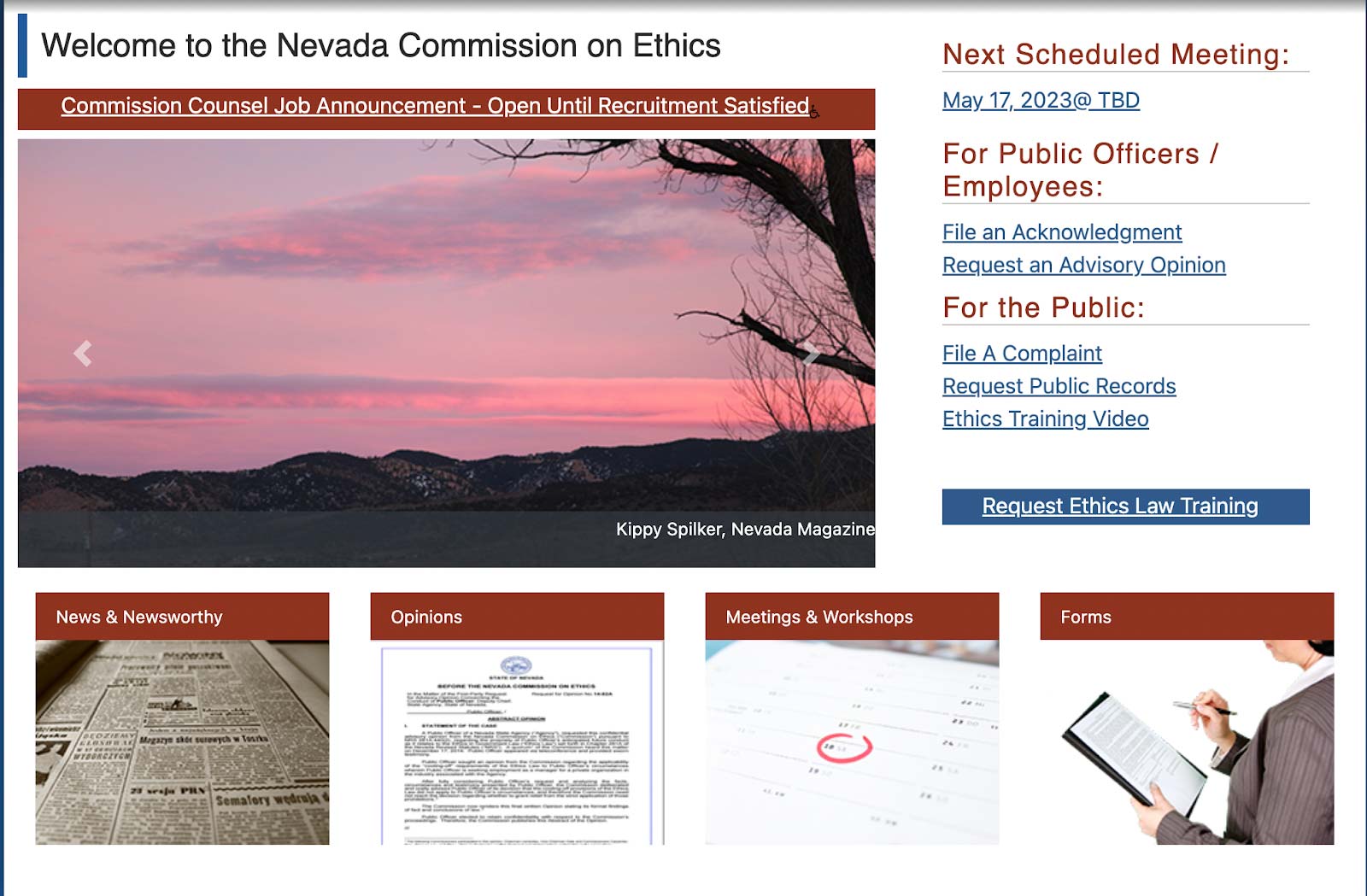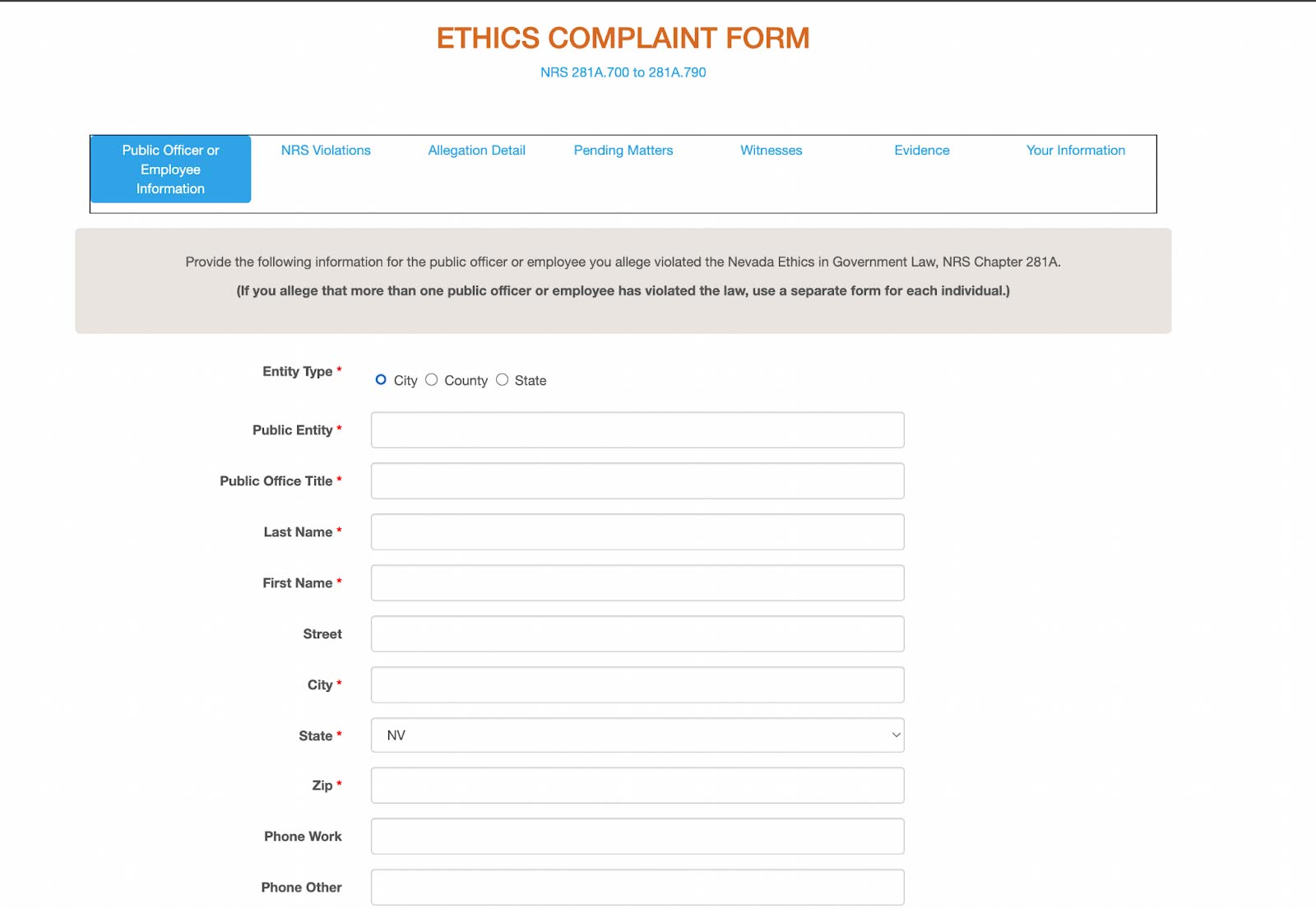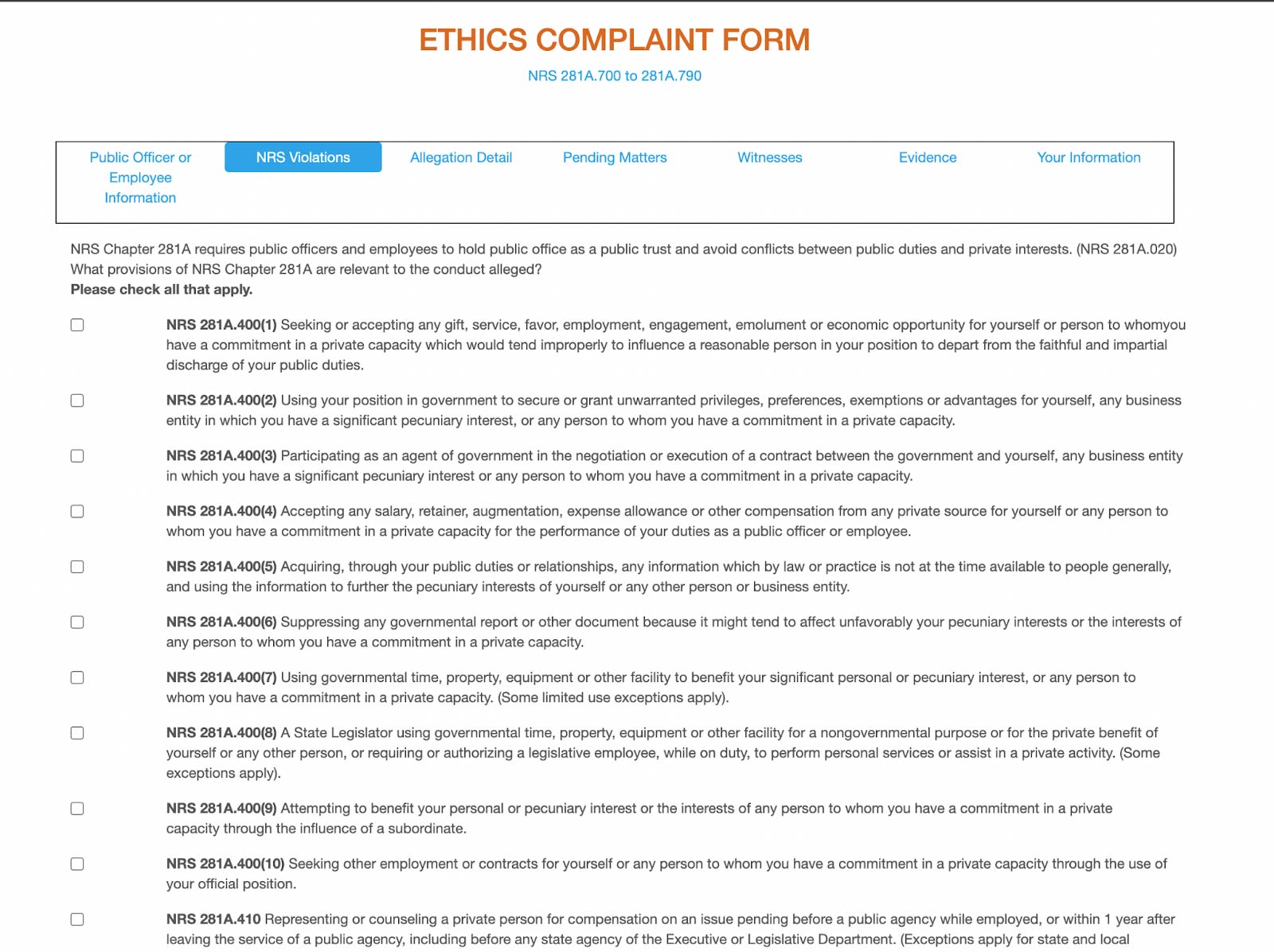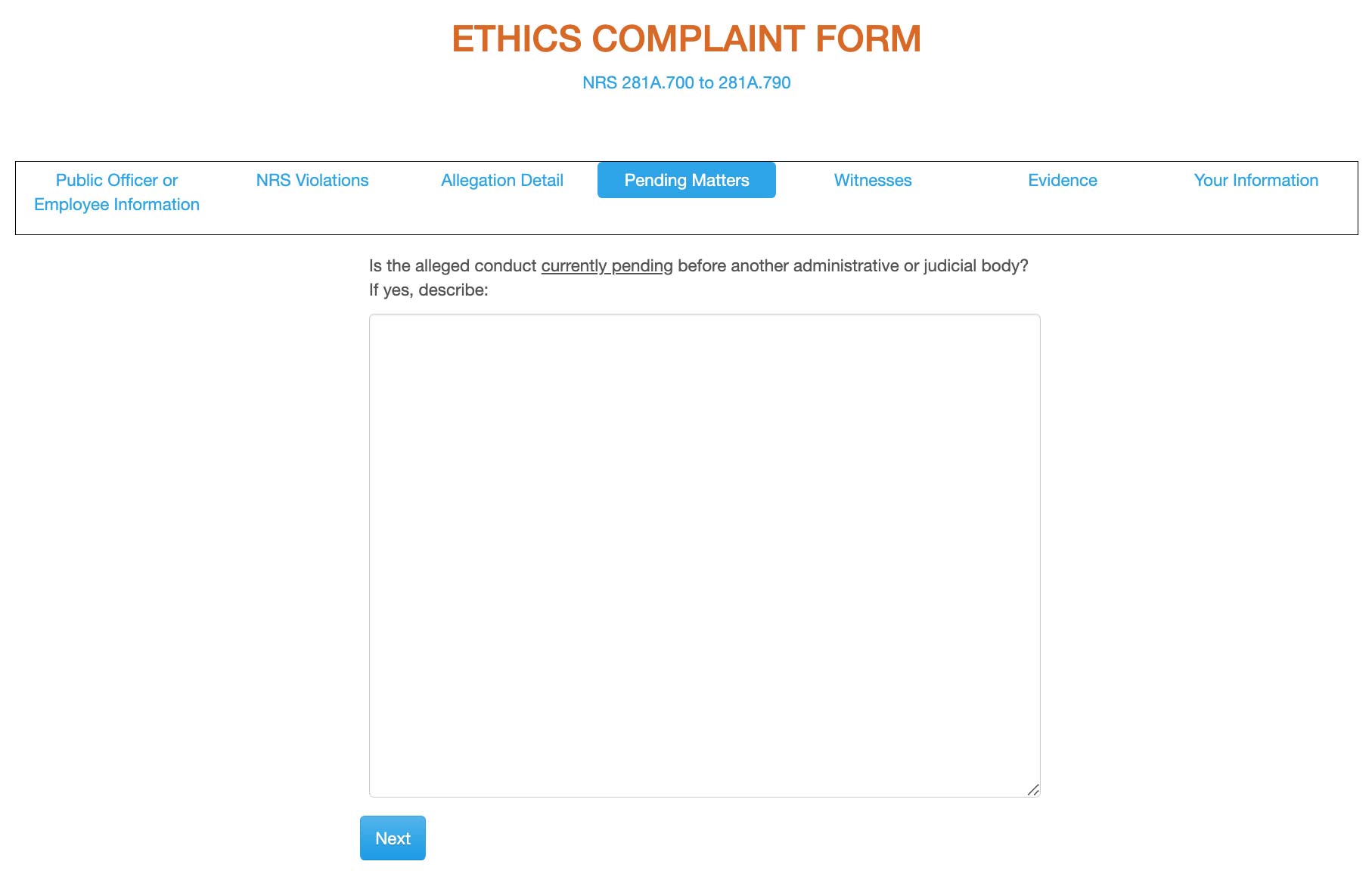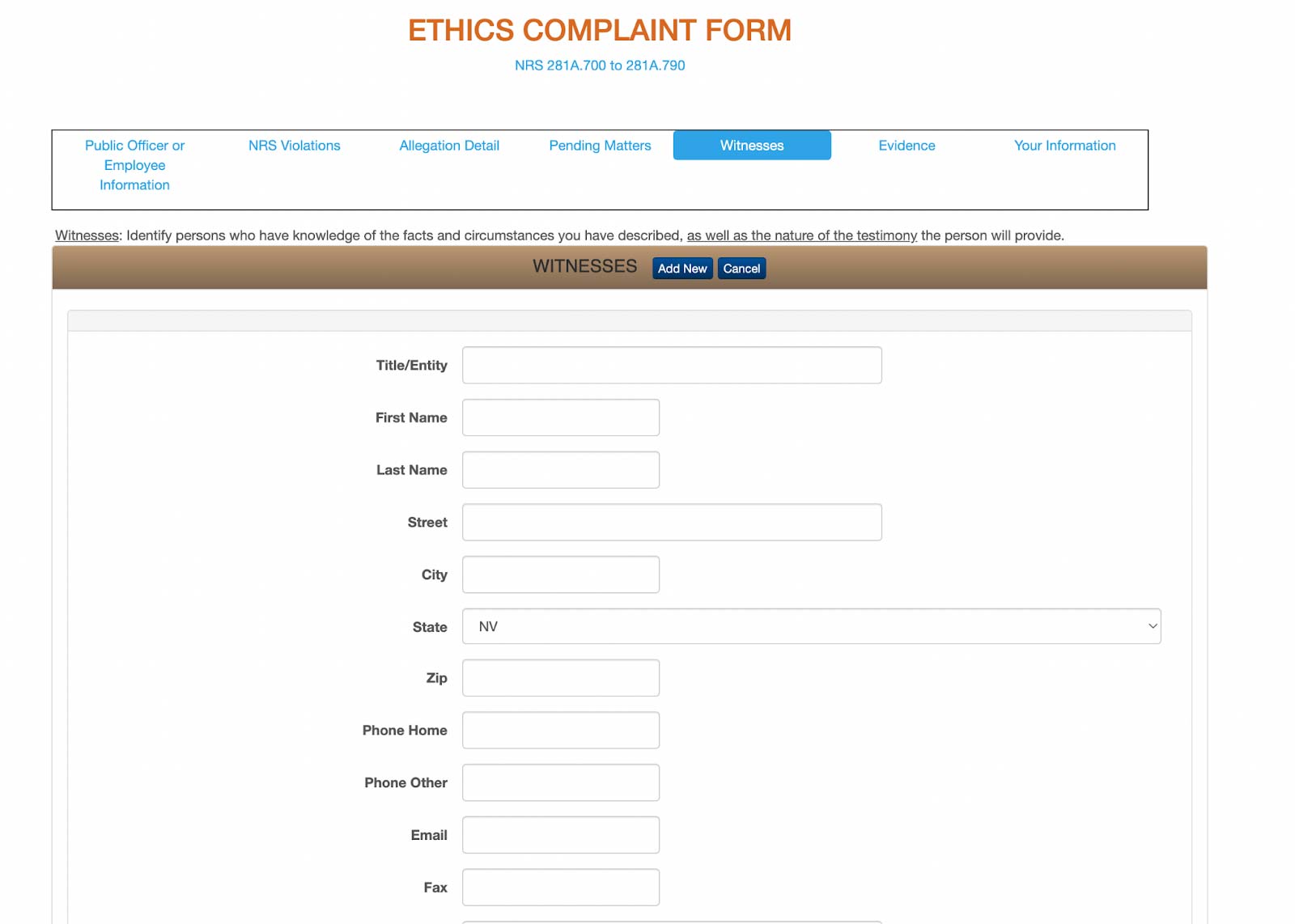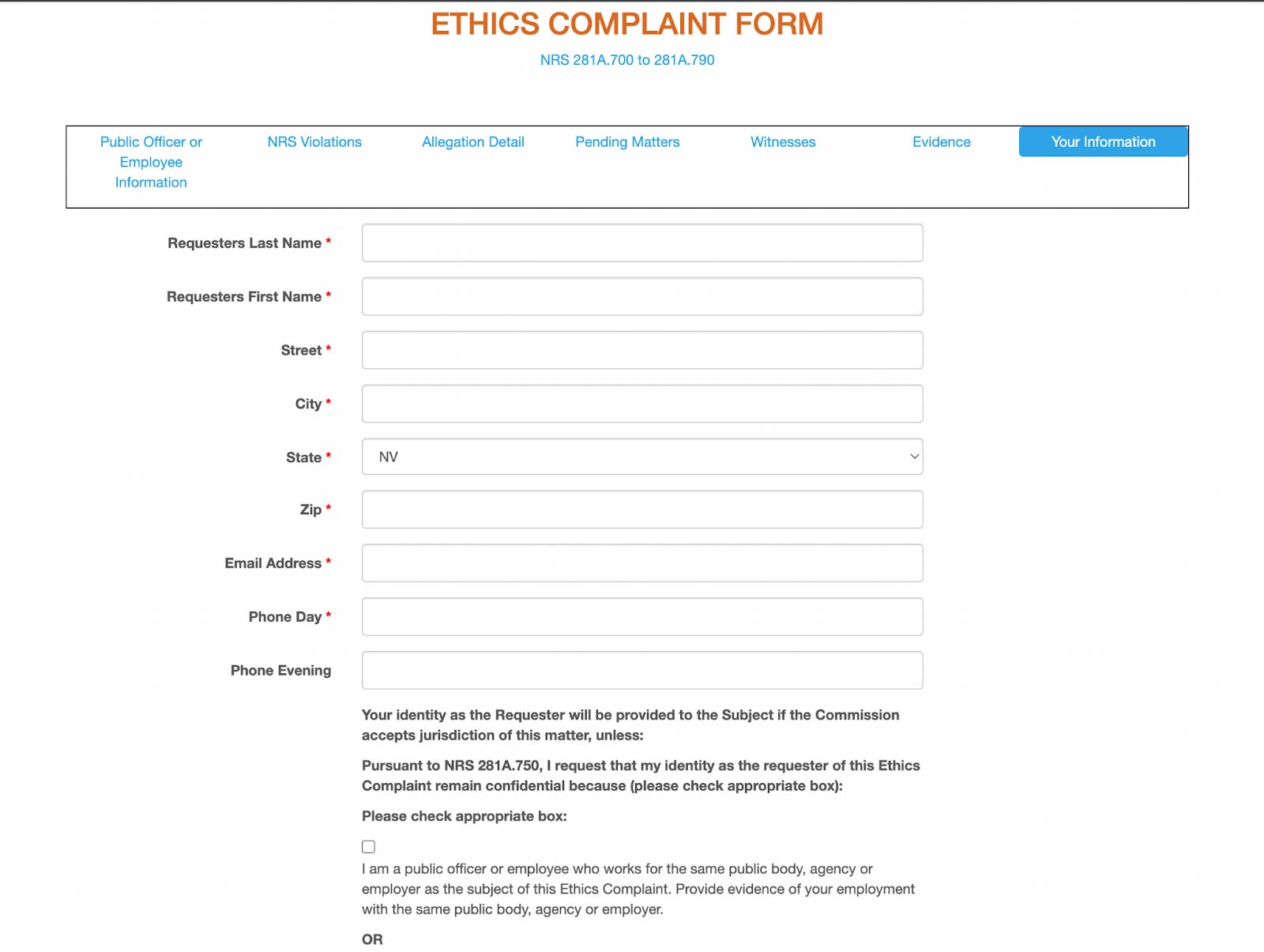If you have your documents and evidence already gathered, this process takes around 10 minutes.
I’ll also do a summary for you in the P.S. section of this letter.
Now let’s get started. For Nevada, visit this link: https://ethics.nv.gov
This takes you to the Nevada Commission on Ethics website.
Before filing an ethics law complaint, make sure a valid issue exists. Don’t file a complaint because you dislike a politician’s attitude or appearance; there must be an illegal or unethical action that breaches their oath. Typically, you should have firsthand knowledge of the violation.
Before clicking the link to file a complaint, ensure you’re ready to do so.
Collect all relevant information and evidence related to the unethical behavior. This may include dates, times, locations, names of individuals involved, and any documentation (such as emails, text messages, or recordings) that supports your claim. Once you have your evidence and details, proceed to file the complaint.
Click on the link to file a complaint.
A form will appear for you to fill out with the person’s information, not your own.
The NRS Violations the public servant broke:
Allegations detail page:
The allegations detail page is where you type out all the facts, details, and circumstances that justify the ethics complaint. This is not where your opinion matters; it’s where you state facts. Break things down into bullet points for the commissioners to digest easily. For example:
On 1/2/23, Commissioner ConJob did X
This is a clear violation of NRS 123
We the people expect you to hold Commissioner ConJob accountable
After typing out your summary, click “Next.”
Pending Matters Page:
The following page will be titled “Pending Matters.” If there are no other pending legal matters against the individual, enter “N/A” and click “Next.”
The Witness Page:
There is also the option to remain anonymous in the following pages if you choose and are eligible.
Click “Next” when done.
The Evidence Page:
Your Information page:
Me, I put my John Hancock right on it at the bottom and let the servant know it’s me. Not everyone wants to do that. Say you work for the county, and you want to file a complaint against your boss. You may want to stay anonymous due to repercussions we all know would come.
This is for you to decide.
Once you click the boxes, fill out your info, use your mouse to sign your name, and click “Submit,” you’re done!
Check your email for confirmation and stay up to date on the actions by checking in weekly with the commission to see when your complaint will be reviewed and heard.
It’s up to us all to peacefully hold our public servants and employees accountable. If your evidence is credible and the complaint legitimate, and if the commissioners are honest and follow the law, you will achieve this goal.
Stay involved and use this tool when necessary.
Beadles
P.S.
Here is the summary recap for you:
Filing a Nevada Ethics Complaint: Step-by-Step Guide
This is a simplified and properly formatted guide for filing an ethics complaint in Nevada. The process is similar in many states. If you have your documents and evidence gathered, this process should take around 10 minutes.
Visit the Nevada Commission on Ethics website: https://ethics.nv.gov
Ensure a valid ethics complaint exists. Do not file a complaint based on personal dislike or trivial issues. The complaint should involve illegal or unethical actions that breach the individual’s oath. You should typically have firsthand knowledge about the violation.
Collect relevant information and evidence. This includes dates, times, locations, names of individuals involved, and any supporting documentation (e.g., emails, text messages, or recordings).
Click the link to ‘file a complaint’ on the website.
Fill out the form with the information of the person you are filing the complaint against. Do not enter your information here.
Click “Next” at the bottom of the page after filling in the required information.
On the next page, select the NRS violations you believe the public servant or employee committed.
Click “Next” to proceed to the allegations detail page.
Type out the facts, details, and circumstances justifying the ethics complaint. This is not a place for opinions; state facts and provide supporting evidence, such as hyperlinks to videos, articles, or other relevant material.
Click “Next” and proceed to the “Pending Matters” section. If there are no other pending legal matters against the individual, enter “N/A” and click “Next.”
On the witness page, fill out your information if you have direct evidence against the individual. You can also add other witnesses who can attest to the allegations.
Click “Next” to proceed to the evidence page. Upload your evidence (e.g., documents, images, videos, or audio files) and properly name each file.
Click “Next” to proceed to the “Your Information” page. Here, fill out your personal information and decide whether to remain anonymous. If eligible, you can choose to stay anonymous.
After filling out your information and signing the form, click “Submit.”
Check your email for confirmation and follow up with the commission regularly to stay updated on the status of your complaint.
Remember, it’s essential to hold public servants and employees accountable through peaceful means. If your evidence is credible and the complaint is legitimate, the commissioners should take appropriate action. Stay involved and use this tool when necessary.


